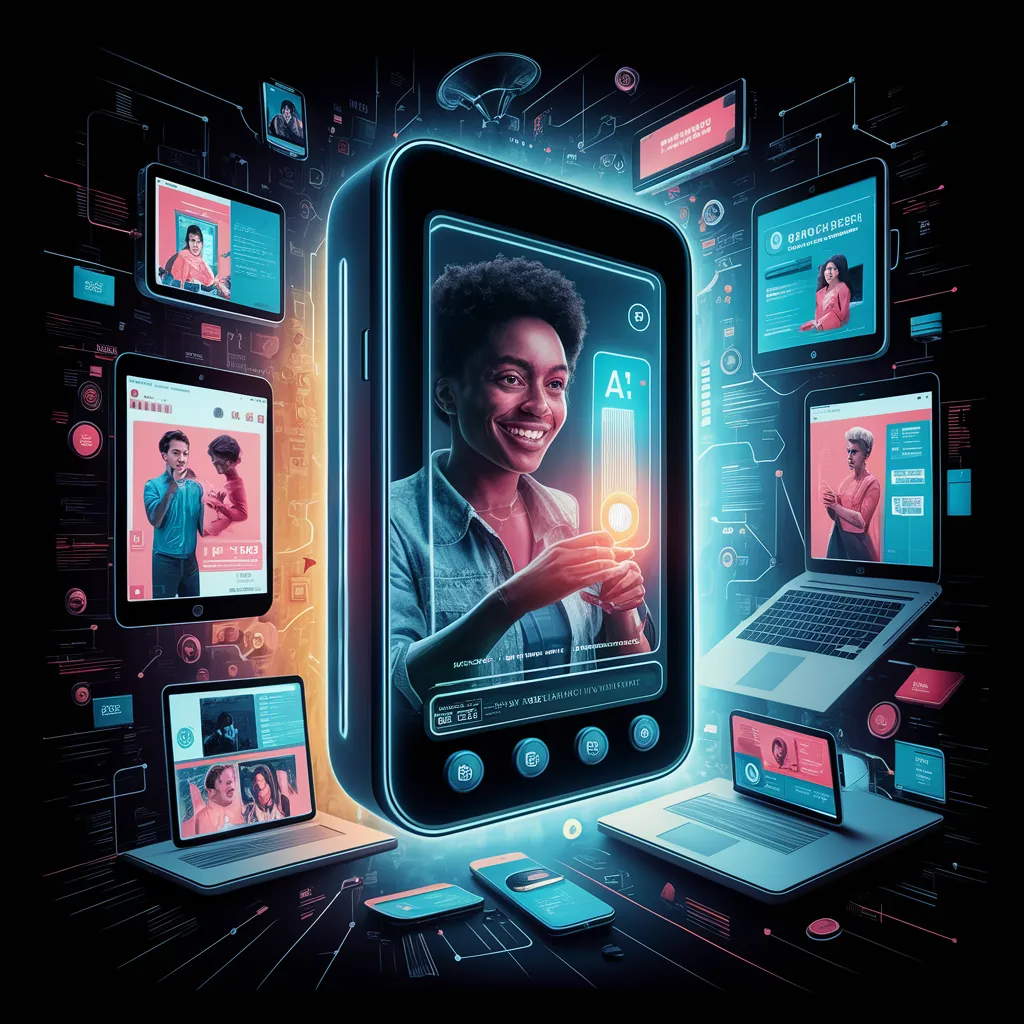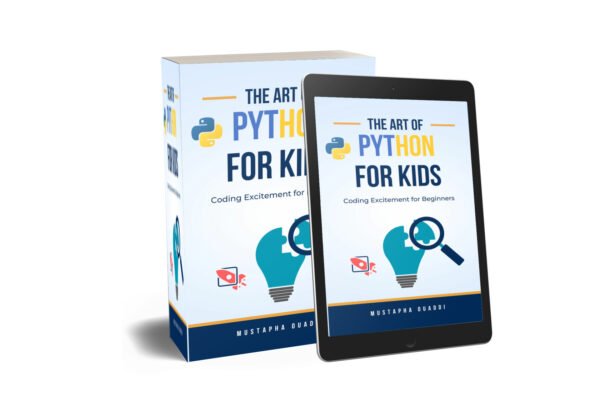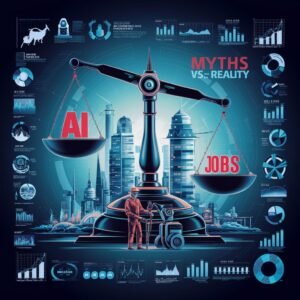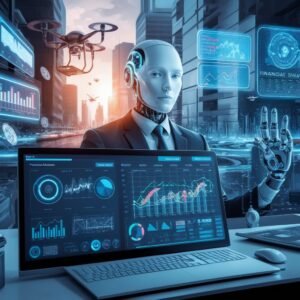Python For Kids
“Python Adventures: Coding Excitement for Beginners” is your ticket to the thrilling world of Python programming. Perfect for beginners, this comprehensive ebook takes you on an exciting journey through the fundamentals of Python, teaching you everything you need to know to start coding with confidence. You can make the future of your children by teaching…
Artificial Intelligence (AI) is revolutionizing the marketing landscape, offering businesses powerful tools to enhance customer engagement, personalize experiences, and drive growth. From chatbots to predictive analytics, AI enables marketers to understand and connect with their audience in ways that were previously unimaginable. This article delves into how AI is transforming marketing, provides real-world examples, and offers practical insights on leveraging AI to boost customer engagement.
The Role of AI in Marketing
AI encompasses a range of technologies, including machine learning, natural language processing (NLP), and computer vision, that enable machines to mimic human intelligence. In marketing, AI is used to analyze vast amounts of data, identify patterns, and automate processes, leading to more efficient and effective marketing strategies.
Key Applications of AI in Marketing
- Personalization: AI helps create personalized experiences by analyzing customer data and behavior to deliver tailored content, product recommendations, and targeted ads.
- Predictive Analytics: AI algorithms can predict future customer behavior based on historical data, enabling marketers to anticipate needs and optimize campaigns.
- Chatbots and Virtual Assistants: AI-powered chatbots provide instant customer support, answer queries, and guide users through their buying journey.
- Content Generation: AI tools can create personalized content, such as emails and social media posts, based on user preferences and behavior.
- Customer Segmentation: AI can segment customers into distinct groups based on various attributes, allowing for more precise targeting and messaging.
Real-World Examples of AI in Marketing
1. Personalized Recommendations
E-commerce platforms like Amazon and Netflix use AI algorithms to recommend products and content to users based on their past behavior and preferences. This personalization increases user engagement and drives sales.
Example: Building a Recommendation System with Python
# Sample Python code for a simple recommendation system using collaborative filtering
import pandas as pd
from sklearn.metrics.pairwise import cosine_similarity
# Sample user-item interaction data
data = {
'user_id': [1, 1, 1, 2, 2, 3, 3],
'item_id': [101, 102, 103, 101, 104, 102, 104],
'rating': [5, 4, 3, 5, 4, 3, 5]
}
df = pd.DataFrame(data)
# Create user-item matrix
user_item_matrix = df.pivot_table(index='user_id', columns='item_id', values='rating', fill_value=0)
# Compute cosine similarity between users
user_similarity = cosine_similarity(user_item_matrix)
# Make recommendations for a user
def recommend_items(user_id, user_item_matrix, user_similarity):
user_index = user_id - 1
similar_users = list(enumerate(user_similarity[user_index]))
similar_users = sorted(similar_users, key=lambda x: x[1], reverse=True)[1:]
recommendations = set()
for user, score in similar_users:
recommendations.update(user_item_matrix.iloc[user].nonzero()[0])
return recommendations
# Recommend items for user 1
recommended_items = recommend_items(1, user_item_matrix, user_similarity)
print(f"Recommended items for user 1: {recommended_items}")
2. AI-Powered Chatbots
Companies like Sephora use AI-powered chatbots on their websites and social media platforms to engage with customers, answer their questions, and provide personalized product recommendations. These chatbots enhance customer service and improve the overall shopping experience.
Example: Creating a Simple AI Chatbot with Python
# Sample Python code for a simple AI chatbot using NLTK
import nltk
from nltk.chat.util import Chat, reflections
# Define chatbot responses
pairs = [
['my name is (.*)', ['Hello %1, how can I assist you today?']],
['(hi|hello|hey)', ['Hello!', 'Hi there!']],
['(.*) your name ?', ['My name is AI Bot.']],
['(.*) help (.*)', ['I am here to assist you. How can I help?']]
]
# Create chatbot
chatbot = Chat(pairs, reflections)
# Start conversation
print("Hi, I'm AI Bot. How can I help you?")
chatbot.converse()
3. Predictive Analytics
Retailers like Target use predictive analytics to anticipate customer needs and preferences. By analyzing purchase history and browsing behavior, they can predict future buying patterns and tailor their marketing efforts accordingly.
Example: Implementing Predictive Analytics with Python
# Sample Python code for predictive analytics using linear regression
import pandas as pd
from sklearn.model_selection import train_test_split
from sklearn.linear_model import LinearRegression
# Sample sales data
data = {
'weeks_on_site': [1, 2, 3, 4, 5],
'sales': [200, 400, 600, 800, 1000]
}
df = pd.DataFrame(data)
# Split data into training and testing sets
X = df[['weeks_on_site']]
y = df['sales']
X_train, X_test, y_train, y_test = train_test_split(X, y, test_size=0.2, random_state=0)
# Train linear regression model
model = LinearRegression()
model.fit(X_train, y_train)
# Predict future sales
weeks_on_site_new = [[6], [7], [8]]
sales_predictions = model.predict(weeks_on_site_new)
print(f"Predicted sales: {sales_predictions}")
Conclusion
AI is reshaping the marketing landscape by providing powerful tools to enhance customer engagement, personalize experiences, and drive business growth. From personalized recommendations to AI-powered chatbots and predictive analytics, the applications of AI in marketing are vast and varied. By leveraging AI technologies, businesses can better understand their customers, anticipate their needs, and deliver more relevant and timely interactions.
Embracing AI in marketing is not just about staying competitive—it’s about creating meaningful connections with customers and delivering exceptional experiences that drive loyalty and growth. As AI continues to evolve, its impact on marketing will only grow, offering even more opportunities for innovation and success.
#AI #Marketing #CustomerEngagement #Personalization #PredictiveAnalytics #Chatbots #VirtualAssistants #ContentGeneration #CustomerSegmentation #MachineLearning #NLP #Ecommerce #TechInnovation #DataAnalytics #MarketingStrategy






